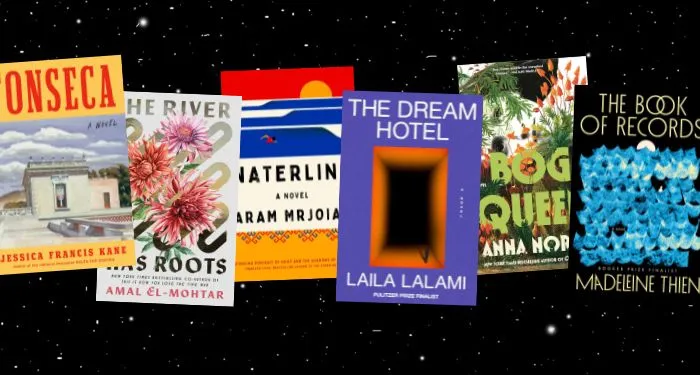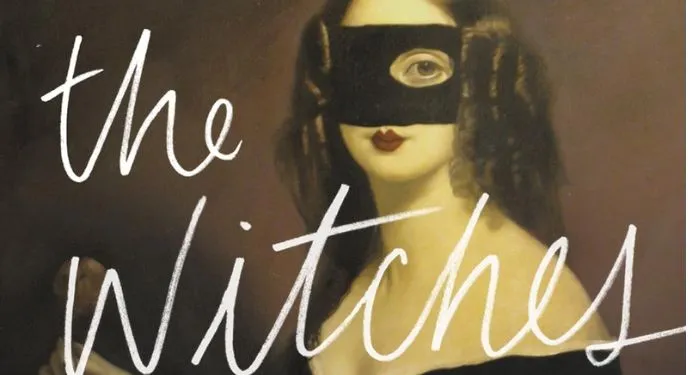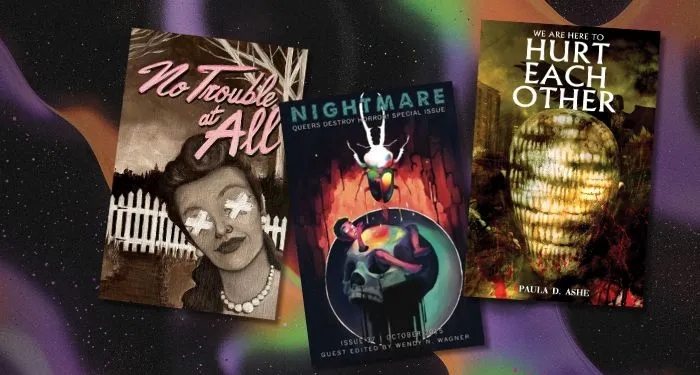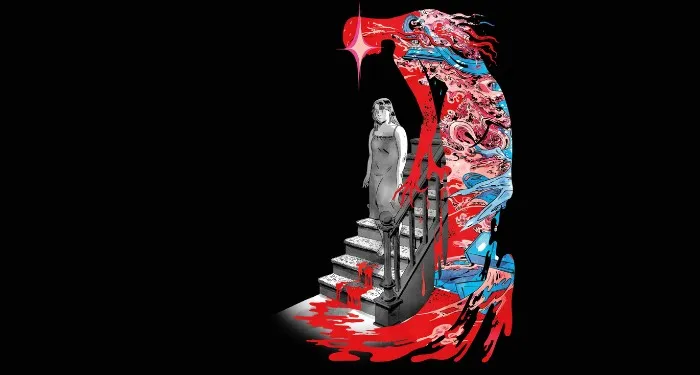In 1896 the French writer Alfred Jarry gave a speech introducing his play Ubu Roi, a pioneering work of avant-garde provocation, at the Théâtre de l’Œuvre in Paris. He ended with a flourish: “As for the action, which is about to begin, it takes place in Poland—in other words, nowhere.”
Ubu Roi was meant to annoy theatergoers, and it did. (A riot broke out in the auditorium during the show.) But in Poland, then and later, Jarry’s quip could feel less like a taunt than a statement of fact. By 1896 Poland had not appeared on political maps of Europe for more than a century, having been absorbed by Prussia and the Austrian and Russian empires in a series of partitions that concluded in 1795. It didn’t exist again as an independent state, the short-lived Second Republic, until 1918. Today’s Poland—which emerged from negotiations between the Allied powers near the end of World War II but didn’t shake off Soviet control until 1989—is both smaller and farther west than the early modern Polish-Lithuanian Commonwealth, which covered what is now Latvia, southern Estonia, Belarus, western and central Ukraine, and a slice of western Russia, as well as Lithuania and the Polish heartlands.
Separatist activism carried penalties in nineteenth-century Poland, even in the relatively liberal Austrian provinces. Writers took up the job of keeping national aspirations alive. As a result, partitioned Poland’s literary history is closely intertwined with the history of social movements: its Romantic poetry is tied up with insurgent nationalism, which led to armed uprisings against Russian rule in 1830 and 1863; its realist novels are entangled with reformist “Polish Positivism,” and so on. Poland was, in effect, an imaginary country, usually conceived along the lines of the old commonwealth. The central text of Polish patriotism, Adam Mickiewicz’s epic poem Pan Tadeusz (1834), begins, “Lithuania! My homeland!” Just as confusing for outsiders, nineteenth-century Polish writers used an elaborate repertoire of symbols and allusions to get around three separate censorship regimes. Bolesław Prus could expect the first readers of his novel The Doll (1890) to deduce the hero’s past as an exiled rebel of 1863 from a brief reference to his time spent “in the neighbourhood of Irkutsk.”
Jarry’s use of Poland as an absurd, nonexistent backdrop was therefore taken in a suitably ironic spirit when the play reached the local branches of international modernism in Warsaw, Kraków, and Lwów, which traded collectively under the slogan “Young Poland.” Tadeusz Boy-Żeleński, a prolific translator and satirist who saw the antihero Ubu as a premonitory caricature of Hitler, published a now classic version of Ubu Roi in 1936. Olga Tokarczuk’s latest novel, The Empusium, which is set in 1913, deals with the same history of national ambiguity and ambivalence, and there’s a significant flicker of Jarryesque irony when a friend asks a young man named Mieczysław Wojnicz—pronounced “Mi-etchy-swuff Voy-nitch”—whether he’s enjoying being trained as a sanitary engineer. “I’d have been better off studying art,” the frail, sensitive Wojnicz replies, “but as you know, it’s not appropriate for citizens of nonexistent countries to take up something so nebulous.” (On the upside, he adds, “I am an expert on sewage systems, and I even know how to construct a water closet.”)
Wojnicz is a Catholic Pole in his early twenties from what’s now Lviv in Ukraine. His upbringing, it turns out, was a miniature parody of the nineteenth-century struggle for national renewal. Like all Polish schoolchildren, he learned to recite the opening of Pan Tadeusz. His mother died in childbirth, and his father raised him to be an army officer on the grounds that a future Polish state would need trained fighting men. (Their family name is rooted in a word meaning “soldier.”) But it was clear from early on that something in Wojnicz’s nature made him unsuitable for such an occupation, something caused perhaps by liberal individualism, which in his father’s view “encouraged girlishness, mawkishness and passivity.” Instead Wojnicz agreed to “study for the Fatherland,” modernized sanitation infrastructure being a precondition for self-government according to the teachings of Polish Positivism. His unease with all this—and, by implication, with his father’s notion of Polishness as a matter of stern masculine duty, with no room for play or ambiguity or any feminine qualities—is at the center of Tokarczuk’s project in The Empusium.
There’s another explanation for Wojnicz’s intended career. He is Tokarczuk’s reimagining of Hans Castorp, the young engineer who’s bewitched by sex, death, and conversations about the future of civilization at a Swiss sanatorium in Thomas Mann’s The Magic Mountain (1924). Tokarczuk’s equivalent of Mann’s Davos is Görbersdorf, a village in the Sudeten Mountains in Lower Silesia, then part of imperial Germany, now a corner of Poland by the Czech and German borders. The historical health resort at Davos was modeled after a similar enterprise in Görbersdorf, which was renamed Sokołowsko in honor of Alfred Sokołowski, a specialist in respiratory diseases, after the Allies assigned most of Silesia to Poland in 1945.
Wojnicz arrives there in September 1913 with a letter of referral from Professor Sokołowski himself. He is “afflicted by various conditions,” including a nasty cough, and he’s still recovering from a breakdown he had while studying in Dresden. Cold showers, gentle walks, and hearty meals washed down with the famous local digestif, Schwärmerei, should effect a complete cure in no time, the presiding physician, Dr. Semperweiss, assures him. The grand spa house is full, so Wojnicz takes a room at a slightly shabby “Guesthouse for Gentlemen.” Among his fellow boarders are two men who correspond to Lodovico Settembrini and Leo Naphta in Mann’s novel: August August, a democratic humanist, and Longin Lukas, a religious reactionary. Wojnicz feels more drawn to Thilo von Hahn, who’s about his own age and has an advanced case of tuberculosis, much like Hans Castorp’s cousin Joachim Ziemssen.
But before he has had a chance to take stock of these characters, the guesthouse’s routine is disrupted by a suicide. Wojnicz barely perceived the proprietor’s wife, Frau Opitz, on his first morning there. He had an impression of a pleated skirt and the lacy edge of an apron, and then a breakfast tray appeared beside him. A few hours later he finds her corpse laid out on the dining table, a livid mark on her neck and a mocking smile on her lips. Assailed by memories of his childhood nanny, the only person who ever showed him affection (his father abhors displays of “female emotions”), and mesmerized by “all the forms and details that constitute the essence of a woman, such as pleats, wrinkles, frills, bodices, yokes and lace—the entire heathen world of materials designed to cover the female body,” Wojnicz is overwhelmed by a sudden, vivid sense of Klara Opitz’s personhood: “Only now, after death, could she be seen in her entirety.”
This sense, he soon learns, isn’t shared by Herr Opitz or, with the exception of Thilo, the other guests. Over dinner they agree that hanging oneself is a sign of feminine unreasonableness, and also inconsiderate. (Opitz’s surly assistant, Raimund, has taken charge of the kitchen, and he is a terrible cook.) In fact, “whether about democracy, the fifth dimension, the role of religion, socialism, Europe, or modern art,” their conversations over the weeks that follow “come down to the same thing—women”: their primitive level of consciousness, their unfitness for public life, their dubious claim to bodily autonomy, their inability to write novels without using gothic tropes “to conceal their lack of talent in sustaining a consistent plot,” and many other failings. Whenever the guests limber up for philosophical disputation on any other subject, everyone’s concentration is scattered by gulps of Schwärmerei, a drink that has unusual sensory effects because, as Wojnicz later discovers, it’s flavored with liberty cap mushrooms.
In these debates Wojnicz takes the part of a passive, ingenuous observer. He knows very little about women, although Lukas sometimes teases him about his attraction to a patient he privately calls “Frau Large Hat,” who has a slinky walk, like The Magic Mountain’s Clavdia Chauchat, and is always beautifully dressed. Wojnicz is preoccupied by other mysteries—mysteries that Thilo whispers about to him at night. For something is a little off, a little folk-horror, about this village surrounded by impenetrable forests and suspended, so it’s said, above a vast underground lake. In the woods charcoal burners, muttering in an incomprehensible dialect, fashion crude sex dolls from fungi and moss and mud. In their attics the villagers keep heavy chairs equipped with leather restraints. Why do twigs and leaves stir in the dependably windless valley when a strolling gentleman remarks that a woman’s body “belongs to mankind”? Why is the cemetery filled with generations of young men who all died in early November?
Thilo maintains that a landscape is “a concentration of various energies,” capable of demanding a sacrifice. Wojnicz tells him that this is the fever talking, or else that they’ve all been drinking too much Schwärmerei. (The word means “ecstasy” or “rapture,” as well as “a crush.”) And on one level he may be right. The only full-blown encounter with the supernatural takes place while Wojnicz, against his will, is extremely high on magic mushrooms. Still, the writing switches repeatedly between two third-person modes: the past tense, with Wojnicz as the focal character, and the present tense, in which an enigmatic “we” swoops and prowls like the camera in Sam Raimi’s Evil Dead movies. “We shall leave them, to vacate the house via the chimney or the chinks between the slate roof tiles.” “We are drawn to the cracks between the floorboards—and there we disappear.” This “we” also seems to have likes and dislikes. It doesn’t seem fond of misogynistic men.
Although the first English translation of one of her books appeared in 2002, Olga Tokarczuk’s reputation in the English-speaking world didn’t take off until the late 2010s, when Flights (2007, translated 2017) found an admiring readership. It went on to be awarded the International Booker Prize in May 2018. Seventeen months after that, Tokarczuk won the Nobel Prize, backdated to 2018 as a result of developments in Stockholm, where a sexual assault scandal had engulfed the Swedish Academy and prevented the announcement of a prize that year.
As a result, it was easy for English-speaking readers to think of Tokarczuk as having conquered the world out of nowhere with Flights, a mosaic of fragmentary stories and reflections on themes of anatomy and international travel in which readers aren’t actively discouraged from identifying the first-person narrator with Tokarczuk herself. Along with the stories’ lugubrious tone and their interest in such historical figures as Benedykt Chmielowski—later to appear as a character in The Books of Jacob (2014, translated 2021), he wrote an eccentric eighteenth-century encyclopedia in Polish and Latin—Flights offered British and American reviewers an irresistible label for this gifted writer from continental Europe: “In the vein of W.G. Sebald”; “echoes of W.G. Sebald”; “on the level of W.G. Sebald.”
It’s no bad thing for a writer to be likened to Sebald, and it’s true that there’s a family resemblance between loosely assembled, genre-crossing books like Flights or the earlier House of Day, House of Night (1998, translated 2002)—books that Tokarczuk calls “constellation novels”—and the blends of fiction, history, and pseudo-autobiography that Sebald and many other European writers were also developing in the 1990s. But the first-person ruminations in Flights aren’t particularly representative of a body of work that is rooted much more firmly in straightforward fiction. Born in 1962, Tokarczuk moved to the forefront of Polish writing with her third novel, Primeval and Other Times (1996, translated 2010), which distills Poland’s experience of the twentieth century into the imagined village of Prawiek (“primordial,” “time immemorial”). Her magnum opus, The Books of Jacob, is a historical novel, and she’s a prolific writer of short stories. Despite the heroic efforts of Antonia Lloyd-Jones and Jennifer Croft, her translators, most of the stories and four of the novels aren’t yet available in English.
Tokarczuk grew up in western Poland, where her father’s side of the family had arrived from Galicia after World War II. (Poles from what had become Soviet Ukraine were settled in Lower Silesia and other regions that the German population had fled or from which it was being expelled; there are some eerie glimpses of the process in House of Day, House of Night.) She was studying psychology in Warsaw when General Wojciech Jaruzelski imposed martial law on the Polish People’s Republic in 1981. In the early 1990s she discovered feminist theory while browsing in the Silver Moon Bookshop on Charing Cross Road in London, where she’d gone to earn some money and improve her English. At that time she was also absorbed in the writings of Carl Jung. “[I] was taken with his idea of the collective unconscious,” she told her Paris Review interviewer in 2023, “as well as with his insistence that we belong to the organic world—that plants, animals, and mushrooms are all important to understanding human consciousness.”
In Primeval and Other Times these interests come together in an unsentimental brand of magic realism. There are recursive touches and metaphysical speculations of the kind you’d find in Julio Cortázar or Jorge Luis Borges and dreamlike irrealism of the kind you’d find in Bruno Schulz. And there are stark images of historical suffering—the murder of the region’s Jews; a girl raped by both German and Russian soldiers—along with everyday disappointments and discontents. An outcast woman known as Cornspike becomes a sort of archetype, haunting the woods, communing with a gigantic underground “mushroom spawn,” dallying with her opposite number “the Bad Man,” and bearing a plant’s child in a dream. In the books that follow, witchy presences in the woods are a recurring motif. The narrator of Drive Your Plow Over the Bones of the Dead (2009, translated 2018), Mrs. Janina Duszejko, is a domesticated, self-ironizing version of the type, and seemingly immortal old women are figured as being in some sense the presiding consciousnesses in The Books of Jacob and The Empusium.
Field guides to mushrooms, we’re told in House of Day, House of Night, are written
as if there are good mushrooms and bad mushrooms. No mushroom book separates them into beautiful and ugly, fragrant and stinking, nice to touch and nasty, or those that induce sin and those that absolve it. People see what they want to see, and in the end they get what they want—clear, but false divisions. Meanwhile, in the world of mushrooms, nothing is certain.
Knowing how to pick mushrooms is a sign of good character in Tokarczuk’s books. (Wojnicz is an expert, and House of Day, House of Night includes several recipes that Lloyd-Jones advises readers not to try at home.) But the world of mushrooms also has a political aspect, to do with ideas of unruliness, interconnection, and resistance to easy labeling. There’s an insistent analogy in Tokarczuk’s work—making her a hate figure for Poland’s nationalist, ultra-Catholic right—between the arbitrarily constructed qualities of gender roles and the arbitrarily constructed qualities of nation-states. As “clear, but false divisions,” they’re subjected to prolonged ironic scrutiny.
Sometimes this takes place at a high level of abstraction. Flights draws parallels between anatomists’ investigations of the human body and European navigators’ conquest of the earth in a way that anyone who has studied history or literature or art in the last few decades will recognize. But the writing comes to life whenever it turns to the Lower Silesian borderlands, where Tokarczuk owns a house near Nowa Ruda, “a Silesian, Prussian, Czech, Austro-Hungarian and Polish town, a town on the outskirts.” One thread of House of Day, House of Night concerns a gender-dysphoric early modern monk who finds inspiration in Silesian folk traditions and seeks to get the pope to “recognize him as a woman.” Another concerns an elderly German tourist, expelled from Silesia as a child, who dies while strolling in the woods near Krajanów. Neither the Polish nor the Czech patrolmen want to take charge of the body—too much paperwork—so the dead man spends some time being surreptitiously heaved back and forth across the border.
Tokarczuk’s most sustained subversion of Polish nationalism, however, is The Books of Jacob, which runs to 965 pages in translation. It dramatizes the life and times of Jacob Frank (1726–1791), the leader of an antinomian Jewish religious movement during the final decades of the Polish-Lithuanian Commonwealth. Following in the footsteps of an earlier failed messiah, Sabbatai Zevi, Frank induced his followers to perform “Strange Deeds”—ritual violations of Jewish law, allegedly involving wife swapping and other sexual transgressions—and later to convert, at least outwardly, first to Islam and then to Catholicism. Some Frankists joined the ranks of the Polish nobility. Others became Enlightenment radicals, and one of them was guillotined alongside Georges Danton in 1794. Tokarczuk’s telling of this story is filled with reminders that Polish Catholics made up only around 50 percent of the relatively tolerant, multiethnic population of the commonwealth. “Does anyone here speak Polish?” a noblewoman screams in an early chapter.
It’s clear that Tokarczuk was drawn to this material as a way of mourning the Poland that might have been if not for forced emigration and the destruction of Europe’s Jews. (Polish Catholics formed 96 percent of the population by 1946.) One problem she faces in using Frank to think about this history is that Jewish tradition has typically seen him—in Gershom Scholem’s words—as a “hideous and uncanny figure.” Recent scholars of Frankism, led by Paweł Maciejko, are more likely to file him among such eighteenth-century adventurers as Casanova and Count Cagliostro. But they do confront the ugly fact that the Frankists revived the blood libel in their public disputes with the rabbis of Brody and Lwów, and to her credit Tokarczuk does too. She also turns an amused but uncensorious eye toward the practicalities of running a polyamorous cult. In the background, wars that will decide the commonwealth’s fate—the stock-in-trade of Poland’s classic historical novels—are a noisy distraction.
Among the other ingredients of this national counter-epic, best read with generous servings of Wikipedia and Google Maps, are explorations of the inner lives of Frank’s followers (Frank himself is a cipher); densely researched descriptions of a vast, more or less borderless territory stretching from the Baltic to the Black Sea; and a free-floating point of view that suggests a passionate identification with the characters’ desire to break through the world of appearances in search of something that may well turn out to be inarticulable. The character who comes closest to doing so is Frank’s grandmother Yente. Having swallowed a cabalistic amulet on her deathbed in 1752, she spends the novel psychically observing the action from a forest cave that will, in April 1944, send forth a handful of Jewish survivors. By then her body has become “pure crystal,” and her consciousness can move freely through time and space. But even Yente has questions:
The world is made up of wants—this is lacking, that is gone. But why is it like that? Couldn’t there have been everything in excess—warmth, and food, and roofs over people’s heads, and beauty? Whom would it have hurt? Why was such a world as this created? There is nothing permanent under the sun, everything passes, and you won’t even have time to get a good look at it. But why is it like that?
That passage’s gentle swerve from the Ecclesiastes-like “nothing…under the sun” to the chattier register of “and you won’t even have time to get a good look at it” is characteristic of Tokarczuk’s writing. Even at her most impassioned, she’s rarely solemn. The unusual clarity and elegance she is said to have in Polish might not be easily importable into English, but a funny, down-to-earth voice comes through with impressive consistency in Lloyd-Jones’s and Croft’s translations. A distinction between the serious and the playful is one of the “clear, but false divisions” she resists.
At the same time The Empusium has more of a holiday mood than some of her earlier books. In this it’s a companion piece to Drive Your Plow Over the Bones of the Dead, another parodic mystery in which the forces of nature apparently target unpleasant men in the Silesian woods, which Tokarczuk wrote as a break from compiling The Books of Jacob. Both novels also wear their politics on their sleeves, and there are hints that her main target in The Empusium isn’t so much The Magic Mountain, a work that’s already filled with irony and parody, or even the unreflectingly androcentric intellectual tradition in which Mann stands, so much as the rhetoric and policies of Jarosław Kaczyński’s Law and Justice Party, which governed Poland between 2015 and 2023 and still has control of the country’s presidency. Having brought in Europe’s most restrictive abortion regime, Law and Justice was pursuing a legislative struggle against “LGBT ideology” (“even more destructive to the human being” than communism) and historians who challenge a self-pitying narrative of Polish martyrdom (“the pedagogy of shame”) when The Empusium was first published in 2022.
It’s easy to imagine Kaczyński, not to mention his confreres from Hungary, Russia, the United States, and elsewhere, taking a seat in the Guesthouse for Gentleman’s dining room. He wouldn’t approve of Wojnicz, who comes to despise the Polish patients in Görbersdorf for their “carefully hidden insecurity,” always “poised to shift into bravado,” and finds it in himself to reject the role of ideal future Polish citizen that his father devised for him. “My lungs are real, but my nationality is not,” he snaps at Dr. Semperweiss. Thanks to repeated scenes of discomfort with nudity and doctors, and an emphasis on Wojnicz Sr.’s frantic efforts to make a man of his son, the twist that follows—it turns out that Wojnicz is an intersex person whose gender identity is as contested and mutable as Polish nationality in 1913—doesn’t come as a great surprise. While the twist is cleverly worked and thematically essential, the need to hide things from the reader while also foreshadowing them gives these parts of the book’s setup a fussy, congested quality. In spite of a few sharp moments, the endless sexist rants, too, pose a storytelling problem that’s never quite solved.
Yet the book isn’t a failure, because in the end gothic mysteries and parodying The Magic Mountain are subsidiary concerns. If Tokarczuk’s joke about “lack of talent in sustaining a consistent plot” is a riposte to Polish critics, then those critics had half a point: even Primeval and Other Times, her least unconventional novel, is an intricate configuration of discontinuous short story–sized units rather than a single extended action with a single protagonist. At the level of theme, however, she makes this a virtue. Her body of work is animated by the idea that being trapped in a single consciousness—one’s own—is a somewhat desolate condition. Tokarczuk’s natural mode as a writer is polyphonic, and in her recent books she seems interested in finding ways to depict a state of pantheistic depersonalization in which history and landscape and something like a collective unconscious can speak through the narrating voice—an effect she unsolemnly calls “fourth-person narration.”
Limited beings that we are, though, we may get bored or confused by the numerous characters and digressions needed to get there, which is where witty variations on a generic horror plot come in. In The Empusium they structure the same sort of material you’d find in one of Tokarczuk’s constellation novels. Disquisitions on bizarre motifs in religious art jostle with stomach-turning accounts of Wojnicz’s encounters with regional cuisine. Tokarczuk has a marvelous time cooking up something nasty in the woods, and the novel closes with a haunting scene of entranced men lining up for a terrible fate, as they will do again in eight months’ time when World War I breaks out. Wojnicz, dressed in Klara Opitz’s clothes and traveling with her passport, exits the novel with great style, throwing a dried bean in the air and catching it in her mouth. It’s a characteristically Tokarczukian moment of gratuitous poetry, expressive of “a sort of mischievous joy.”



















 English (US) ·
English (US) ·